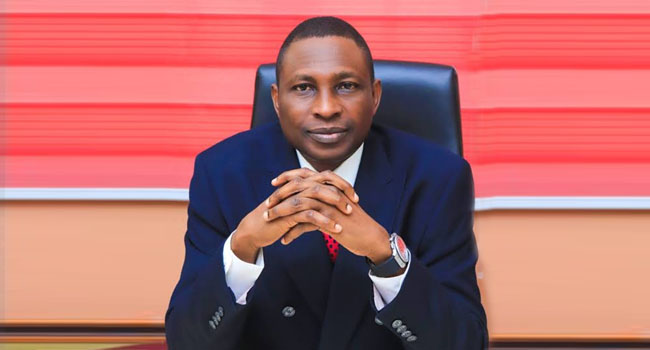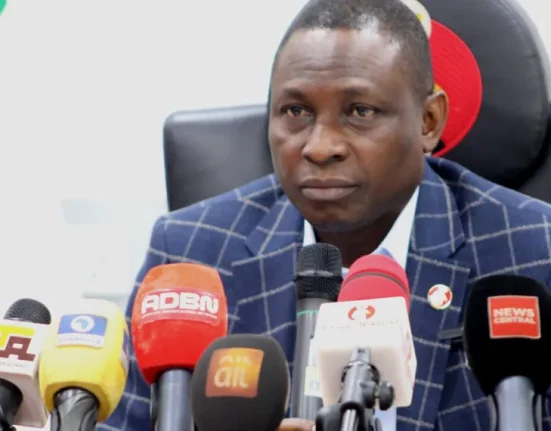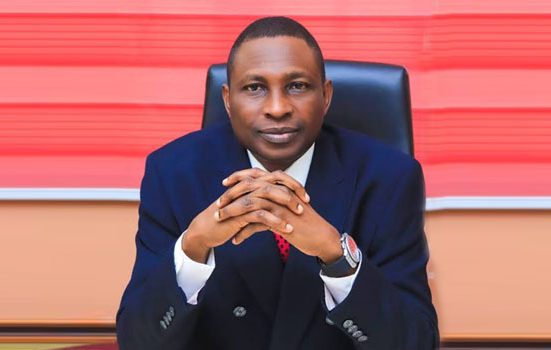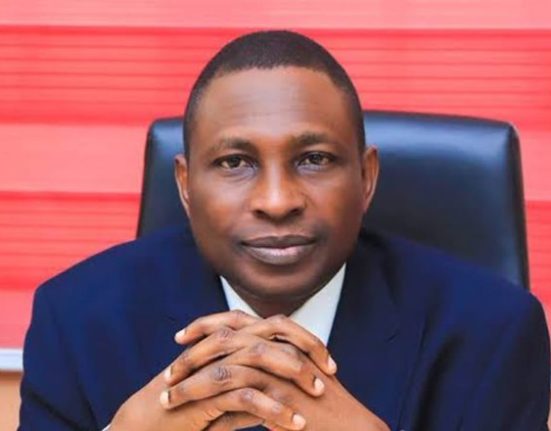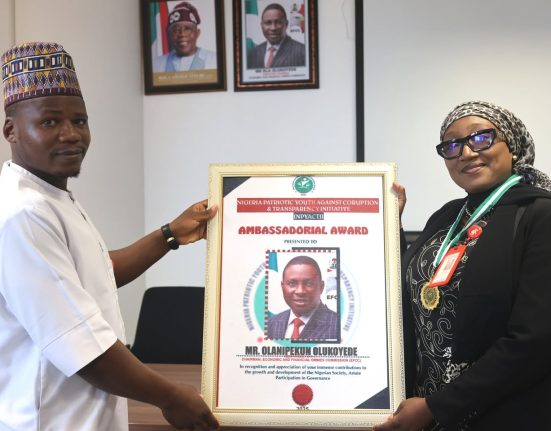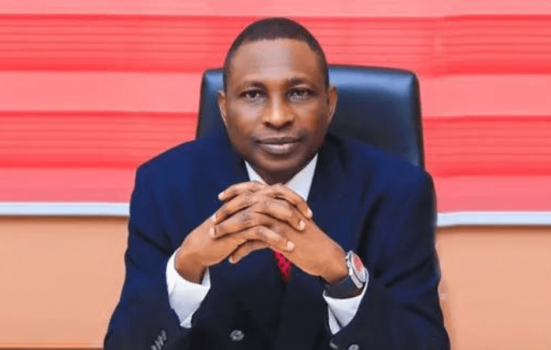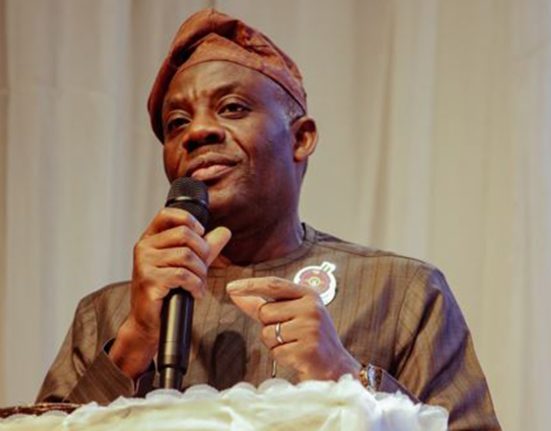The Executive Chairman of the Economic and Financial Crimes Commission (EFCC), Mr. Ola Olukoyede, has called on Nigerian students in tertiary institutions to take the lead in the battle against corruption by embracing integrity, accountability, and ethical leadership within their campuses and communities.
Mr. Olukoyede’s message was delivered on Wednesday, May 14, 2025, during the inauguration of the EFCC Integrity Club at Al-Hikmah University, Ilorin. Represented by Assistant Commander of the EFCC (ACE II) Ayodele Babatunde, who heads the Public Affairs Department of the Ilorin Zonal Command, the anti-graft boss emphasized that the fight against corruption must begin from the grassroots, with the youth playing a central role.
Addressing a packed audience at the university’s auditorium, Babatunde noted that the establishment of the Integrity Club forms part of the Commission’s wider preventive framework aimed at value reorientation, civic enlightenment, and promoting a culture of zero tolerance for corruption among Nigerian youth. He said the initiative is not just a campaign but a strategy to instil uprightness, discipline, and national consciousness in young people.
“Corruption is not an abstract concept removed from our daily realities. It exists in the form of bribery, exam malpractice, cybercrime, sex-for-grades, and other unethical practices that thrive in our schools, homes, and social spaces,” he stated. “This is why students must take responsibility for driving change. You are not too young to say no to corruption and yes to integrity.”
He raised alarm over the rising involvement of Nigerian youths in internet fraud, popularly known as “Yahoo Yahoo,” pointing out that a large percentage of individuals arrested for cybercrime by the Commission are either undergraduates or fresh graduates. He stressed that while social media may glamorize ill-gotten wealth, the true consequences are disgrace, incarceration, or even death.
“Education is a tool for enlightenment and empowerment, not for devising schemes to defraud others,” Babatunde warned. “The reality behind the flash and glamour of fraud is often prison or societal shame. This is why it is important for students to distinguish themselves through honesty and diligence.”
Olukoyede, through his representative, described the newly launched Integrity Club as more than just another student group. According to him, it is a movement of young anti-corruption advocates who will serve as the Commission’s eyes and ears within the academic environment. He charged the pioneer members to act as role models of ethical behavior, promote patriotism, and uphold transparency both within the university and beyond.
“By joining the Integrity Club, you are volunteering to be agents of change. You must walk the talk and lead by example. Integrity must reflect in your daily conduct, academic dealings, and social interactions,” he said.
In a show of institutional support, the Vice-Chancellor of Al-Hikmah University, Professor Noah Yusuf, lauded the EFCC’s proactive approach in targeting the younger generation for ethical reorientation. He noted that engaging youths through education and awareness is a commendable step in fostering a corruption-free society.
“The EFCC has taken a visionary step by focusing on youth empowerment through value-based education,” Professor Yusuf remarked. “At Al-Hikmah University, we take pride in producing graduates who not only excel in academics but also demonstrate sound character. We will continue to support this initiative and ensure that the Integrity Club becomes a permanent feature of student life on campus.”
The event culminated in the formal inauguration of the EFCC Integrity Club, where dozens of students were inducted as founding members. These students took an oath to promote honesty, transparency, and accountability, pledging to serve as ambassadors of integrity within their spheres of influence.
The EFCC’s engagement with Al-Hikmah University is part of a broader national campaign to nurture a new generation of Nigerians who are committed to good governance, ethical conduct, and national development. The Commission reiterated its commitment to expanding this initiative across more tertiary institutions in a bid to entrench a culture of integrity and zero tolerance for corruption.

